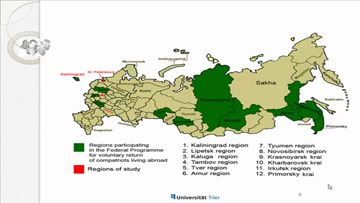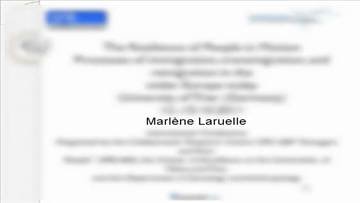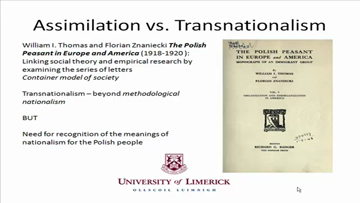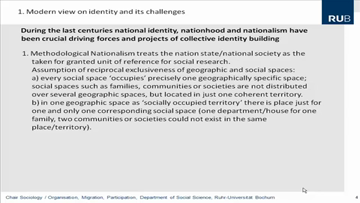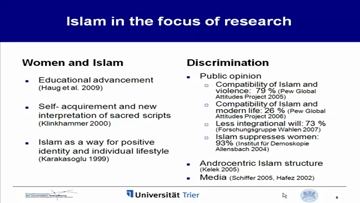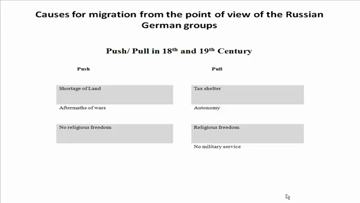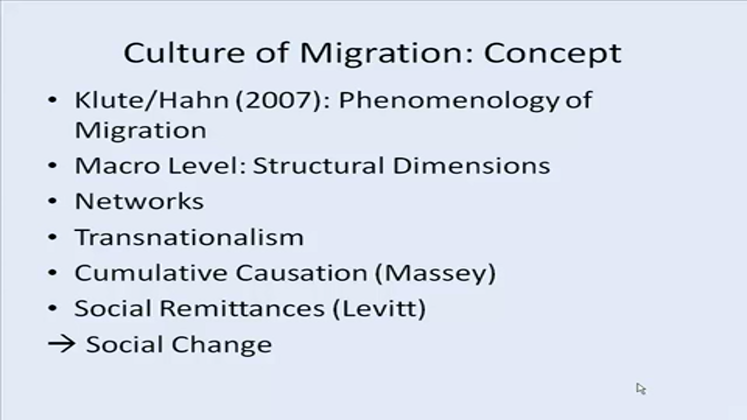Culture of Migration and the Case of the Philippines
How Societies are Shaped by Migration
In migration theory, the situation of the sending country is – apart from studies about remittances, the nexus between migration and development and return migration – a neglected field. The Philippines is largely a sending country of migrant workers and nowadays, more than 10 % of the population live and work abroad. In 2010, the remittances of overseas workers amounted 17% of the Philippine GDP. Migration now is part of the Philippine cultural system and a culture of migration has been established. Nearly every individual shares the social experience of migration, for example by having a family member abroad.
Christ presents the concept of culture of migration. The concept gives a holistic view to migration instead of the prevailing structural approaches on the one hand or ethnographic studies on the other hand. Anthropologists focusing on Southeast Asia discuss the Indonesian concept of merantau (to go abroad). Klute and Hahn argue for a phenomenological approach. However, the case of the Philippines shows that structures like migration policies and the international division of labor have to be included in a holistic account of a culture of migration. The concept also benefits from studies about migration networks and chain migration. The case of the Philippine culture of migration is a strong example of how migration transforms not only the individual migrant or the families, but the society as a whole and is embedded in local cultural meanings.
Simone Christreceived a M.A. in Sociology, Cultural Anthropology and Political Science at the University of Trier in 2008, writing her thesis on Filipina migrant workers in Dubai, United Arab Emirates. Since 2008, she works as a lecturer at the Department of Southeast Asian Studies at the University of Bonn.
Panel VI: The Formation of Identity in Transnational Migratory Processes - October 15th, 2011
The Resilience of People in Motion
-
54498 Hits
-
|
-
2 Votes
-
|
-
16 Beiträge
Processes of immigration, transmigration, and remigration in the wider Europe today
Europe is a continent shaped by migration. Every year millions of people are migrating into the European Union. Others are emigrating from EU member countries. Many are leaving their homes and are trying to integrate into the host country, while others circulate between their home country and their “new home”, leave the country of entry, returning back to their “country of origin”, or they even migrate on to third countries.
Migration is a complex process with constraints and opportunities. Its flows have created different patterns, regimes and even cultures of migration. It involves voluntary and involuntary aspects, economic and non-economic issues, constructions and reconstructions between physical and symbolic spaces. This stipulates also new ways of theorizing and researching in the field.
Strategies of Survival, Strategies of Resistence
Migrants and migratory groups adopt as well as resist to challenges and expectations by the mobility itself or the receiving society. They perform resilient and innovative strategies of survival.
They are resilient by maintaining their culture(s), system(s) of belief, traditions, way of life etc. Yet, they are innovative being open for change, being transformers, innovators, entrepreneurs themselves. Therefore, adoption, change and/or innovation vs. resistance, continuity and/or resilience have to be seen as part of the migratory agency. The migrants’ culture of resilience, meaning the maintenance of core elements of their livelihood, has to be conceptualized in an ever changing world challenging the integrity and cohesion of any, but especially migratory groups.
The Conference
The aim of the conference is to discuss new theoretical approaches, methodologies and empirical research results on immigration, transmigration and re-migration topics. It focusses on changing European migration regimes and discourses since the fall of the iron curtain until today.
Contact
Prof. Michael Schönhuth
University of Trier
Universitätsring 15
D-54286 Trier
+49-(0)6 51-201-27 10 (Office)
http://transmigration.eu/
Zu
The Resilience of People in Motion
